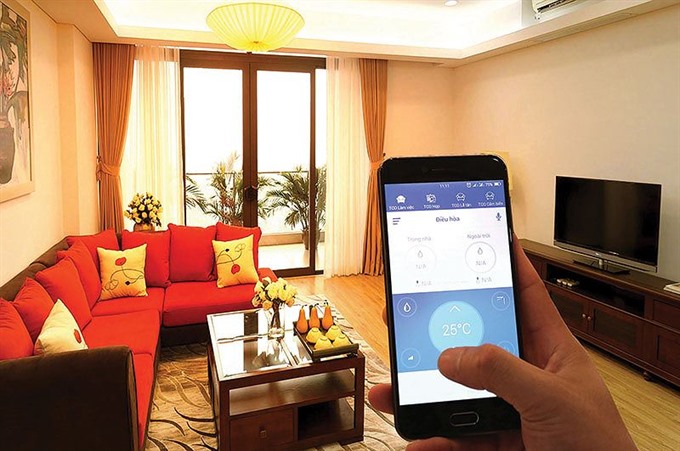 Economy
Economy

" />After financial technology (fintech), which changed the way the financial sector worked, now, property technology (proptech) is expected to effect a change in the real estate industry.
 |
| New technology uses are a growing trend for the real estate sector. - Photo tinnhanhchungkhoan.vn |
HÀ NỘI — After financial technology (fintech), which changed the way the financial sector worked, now, property technology (proptech) is expected to effect a change in the real estate industry.
Proptech has emerged in the world after nearly a decade and has started to grab attention in Việt Nam.
A report by real estate and investment services firm, Jones Lang LaSalle (JLL), showed that US$4.8 billion, out of $7.8 billion worth of funding, was poured into Asia Pacific proptech start-ups between 2013 and 2017.
Asia Pacific was leading the investment into proptech start-ups, with a great deal of potential, according to JLL. “With its young population, rapid urbanisation and popularity of mobile phones, all the conditions are in place for this new sector to grow,” JLL’s report said.
According to Nguyễn Quốc Anh, deputy director of Đại Việt Group, which owns property information website batdongsan.com.vn, proptech would help minimise risks for both buyers and sellers.
Proptech is defined as technology applied to real estate information, transaction and management to digitalise services and products, so as to improve real estate processes and solve modern challenges.
Proptech would help property developers and real estate businesses to make changes and adapt to a new generation of customers via the internet, build brands and direct their products to the right targeted buyers, Quốc Anh said. He said that applying the technology would also promote sales efficiently.
With proptech, customers could search for products to meet their demands, compare prices and choose the best financial solutions to minimise risks. In addition, all transaction procedures would be conducted online, Quốc Anh said.
Besides Đại Việt Group, other firms in Việt Nam also invested in proptech or hastened the application of proptech in their real estate business, such as Holomia – a startup offering virtual reality in marketing for real estate projects and Homedy – a website which helps search project information and compare projects.
Recently, a number of developers such as Vingroup, Sun Group and BIM Group made use of virtual reality and augmented reality to provide customers with real-life experiences of their projects.
According to the Việt Nam Association of Real Estate Brokers, the development of proptech was an indispensable trend, but it was important to improve the awareness of both buyers and firms in applying proptech to fuel a boom in Việt Nam.
Nguyễn Thành Hưng, chairman of the Việt Nam e-Commerce Association, said at a recent online forum that proptech would also help promote the transparency of the real estate market because it made access to real estate information much easier.
According to Pham Văn Hưng, from property developer CenGroup, technology such as big data, artificial intelligence, augmented reality and the Internet of Things was being applied in the real estate industry of Việt Nam, catching up with the global trend. — VNS




